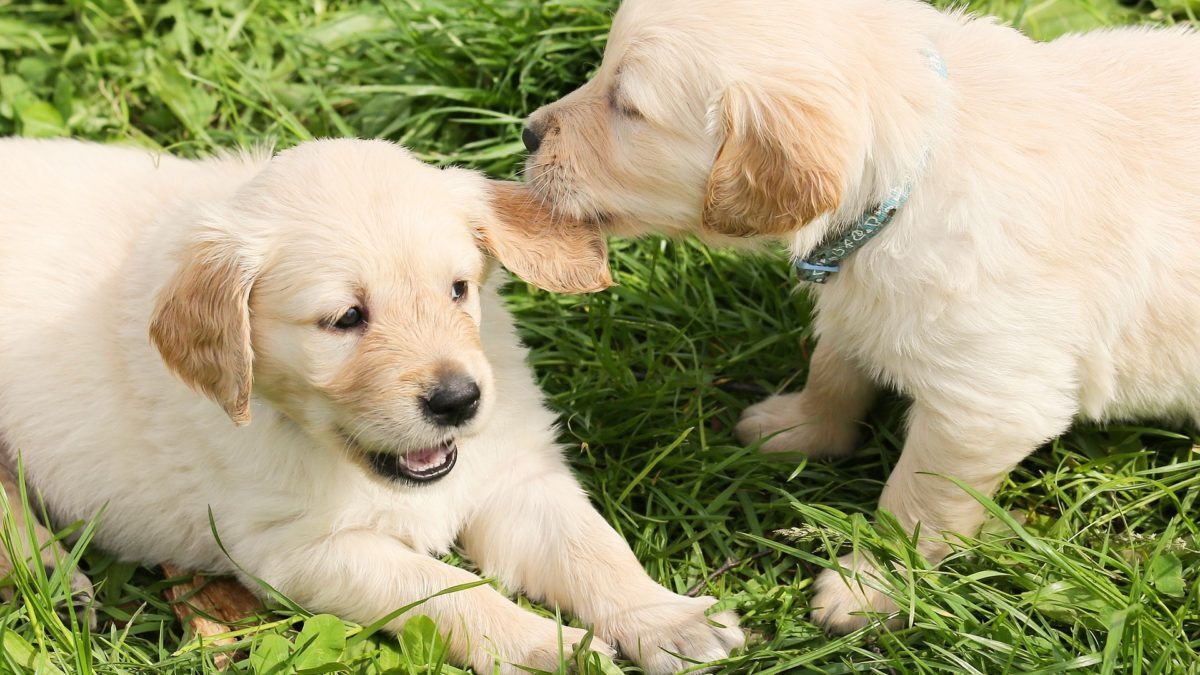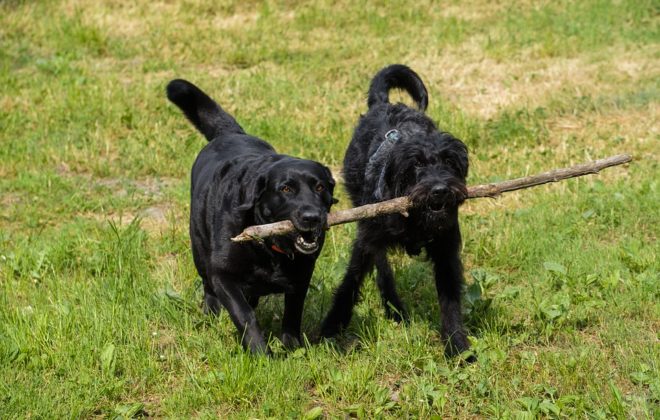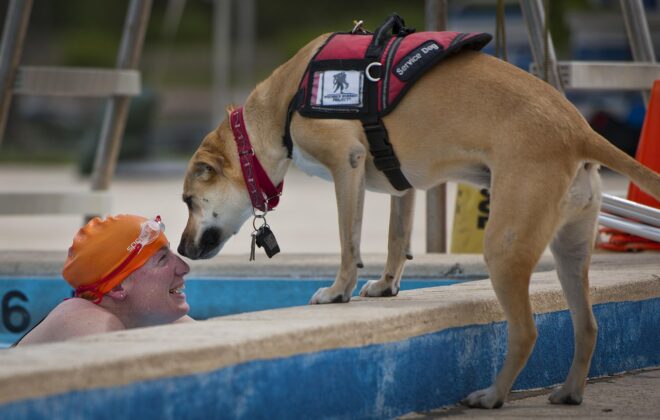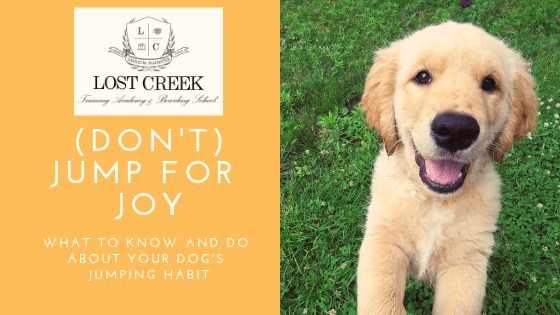How to Socialize Your Dog The RIGHT Way
Socialization is THE single most important thing that owners need to do for the psychological success of their puppy. By properly socializing your dog, you can help ensure that they do not end up fearful and aggressive as an adult!
Dogs
Experts agree that a well-socialized puppy will have met between 50-60 different dogs by the time they are 3 months old. This includes dogs of all ages, breeds, and temperaments. Properly socialized dogs will help create something called bite inhibition in your pup. Essentially, your puppy learns how hard they can acceptably bite another dog in play. This is also something your puppy will learn with dogs of their own age. If puppy 1 gets too rough with puppy 2, puppy 2 will yelp and stop playing, letting puppy 1 know that their bite was too much.
The most critical thing to remember is to make sure that your pup is only exposed to other vaccinated dogs. Dog parks are not good for socialization as they are full of lingering disease! The threat of disease outweighs the possibility of socialization with new dogs, especially when there are so many dog people around willing to help. There are also many dog daycares around where you can take your dog to safely without as large of a threat of disease. Many dogs in dog parks can very much be carriers and never get the disease themselves. Fomites (objects that are vectors for disease) are also an issue at parks as well.
We suggest finding friends who have dogs that are vaccinated. Bathing with soap and warm water before the playdate is always a huge plus to remove disease-causing agents! Be sure to clean up their hind end, feet and between toes thoroughly. It is good practice to stay away from dogs who attend dog parks, dogs who recently attended vet facilities, etc. NEVER let your pup come in contact with another dog’s feces!
Humans
A properly socialized puppy needs to meet between 50-60 different people between the ages of 8 and 16 weeks. These should include people of all ages, genders, nationalities, personalities, hair colors, heights, dress type, and so forth. It is also advisable to expose your pup to people wearing sunglasses, hats, visors, scarves, large earrings or any type of accessory that draws the eye.
When introducing your puppy to new people, make sure to do it in a calm environment. Give the person treats and have them crouch or bend down to the puppy’s level. Have them offer the treat in a flat palm with calm, encouraging words. If the puppy takes the treat, praise them and allow them to walk away if desired. Repeat this until the pup approaches the person on their own.
Never force your puppy to interact with someone. If they show no interest in taking the treat, have the person ignore the pup and have a calm conversation with each other. If the puppy approaches, have them offer the treat but do not get too loud or excited as this can frighten the pup. Continue to slowly expose your new puppy to this person until they no longer show fear. A good training program with an experienced behaviorist is another option that will help you to properly socialize a fearful dog.
Misc. Animals
Introduce your puppy to any animal that they may encounter, even if it will be just occasionally; cats, chickens, horses, cows, etc. Your dog needs to be shown the correct way to interact with these animals to prevent fear now and into adulthood. A dog also needs to learn the right amount of energy to exert with new animals so they do not become too aggressive/rough with other animals.
Introductions should begin when your dog is on leash. It is a good idea to confine the other animal as well. If your puppy gets too excited or rough, pull them away to a safe distance but do not separate them completely. Do this until your puppy approaches the animal in a calm and polite manner. If at any time the puppy gets too wild, separate them but, again, only to a distance that will keep the animal safe. Repeat this process until you feel confidant that your puppy will act in an appropriate manner.
Thank you for taking the time to read my blog. I truly believe that with diligent education of the general public by expert trainers, we can improve the lives of dogs around the world! Remember to Keep Calm and Get Lost at The Creek!

Tiffany Buerer has almost half a decade of training experience with Lost Creek. She is an expert in obedience training, and she has helped rehabilitate hundreds of aggressive dogs. She has also assisted with the training and certification of multiple service dogs through Lost Creek’s Service Dog Training & Certification Program.
Related Posts
Leave a Reply Cancel reply
You must be logged in to post a comment.
Search our site
Categories
- Confessions of a Bad Dog Owner Column (1)
- Inspiration (1)
- Medical (3)
- Products We've Reviewed (1)
- Tips & tricks (8)
- Uncategorized (3)




